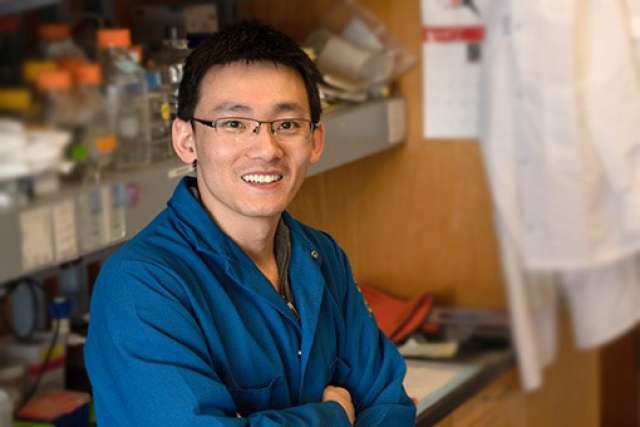UCLA RESEARCH ALERT
FINDINGS
A new study by researchers at the UCLA Jonsson Comprehensive Cancer Center have identified a novel combination therapy to potentially help overcome resistance to immunotherapy in people diagnosed with advanced lung cancer. The combination approach uses immune checkpoint inhibitors with ATRA, a safe medication that is widely used to treat leukemia. The team found the combination therapy lead to eradication of over 70% of tumors when tested in mice with LKB1-deficient lung cancer. It also generated durable tumor-specific immunity.
BACKGROUND
Immune checkpoint inhibitors have substantially improved the outcomes for people with lung cancer. The five-year survival rate for patients with advanced disease on this therapy is more than 13% compared to 5% in patients with conventional chemotherapy. Although immunotherapy has been successful for many patients, a majority of patients still do not respond to the therapy.
To help increase the number of patients who benefit from this therapy, researchers have sought to identify mechanisms for treatment resistance. The tumor suppressor gene LKB1 are found mutated in 20% of patients with non-small cell lung cancer and 30% of KRAS-mutant non-small cell lung cancers. It also is a major gene associated with resistance to immune checkpoint inhibitors. By identifying aberrant pathways caused by LKB1 mutation, researchers are figuring out a novel therapy that targets the pathway and sensitizes LKB1-deficient tumors to immunotherapy.
METHOD
To assess the response of the combination therapy, researchers tested the therapy in mice that were injected with LKB1-deficient lung tumors.
IMPACT
The study provides evidence that using ATRA in combination with checkpoint inhibitors could potentially help patients with advanced lung cancer who carry LKB1 mutation to have a positive response to immunotherapy.
AUTHORS
Lead authors are Rui Li, MD, PhD, currently a resident physician of internal medicine at UCLA, and Ramin Salehi-Rad, MD, PhD, a physician scientist in pulmonary and critical care medicine. The senior authors are Bin Liu, PhD, an adjunct professor of pulmonary and critical care medicine, and Steven Dubinett, MD, a professor of pulmonary and critical care medicine, pathology and laboratory medicine, and molecular and medical pharmacology at the Geffen School of Medicine and physician-scientist in the UCLA Jonsson Comprehensive Cancer Center.
JOURNAL
The in Cancer Research, a journal of the American Association for Cancer Research.
FUNDING
The research was supported in part by funding from the National Cancer Institute, the National Heart Lung and Blood Institute and the Department of Veteran Affairs.




